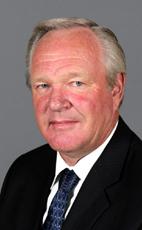Mr. Speaker, I find it difficult to speak to Bill C-33 without some reference at least to Bill C-34, since both bills have been tabled simultaneously and will be dealt with simultaneously in committee.
Generally my concerns with the land claim settlement portion of the two bills are the same as my concerns were with Bill C-16, the Mackenzie Valley land claim agreement. The very process the government has chosen to deal with these land claim settlements is most objectionable, to put it simply.
Considering the importance of these bills, their unprecedented nature, their open endedness, their implications for the fundamental constitutional rights of all Canadians, and the breakneck speed with which these bills are being rushed through is nothing less than an abuse of the parliamentary process. It is a reckless invitation for legal and social disaster.
Much of the confusion I feel and express is testimony to the inadequate time we have been given to deal with this immensely difficult and huge legislative package. There is much in this package that we could agree with. The fact that we can only deal with the bill itself and not the agreement as was the case with Bill C-16 makes it difficult to impossible for our party as well as other interest groups and individuals to discharge their responsibility and rights to comment on, criticize or improve the bill.
In view of these concerns, I have to ask why these bills are being pushed through with such haste. The process thus far has taken 23 years. Why does the government want to pass them through Parliament without proper scrutiny? Could it be that given time to analyze and examine these bills, an effective public opposition to the content of these bills might come forward? Could it be that there really is not the overwhelming support for these bills, so we must rush them through without public awareness or examination?
I must also ask, after negotiating for 23 years, why now, when only four final agreements exist, are we being asked to abrogate our responsibilities as an opposition party to examine the other 10 final agreements? Why did the government not finish the negotiating process, instead of asking us to approve and pass these agreements that do not now exist? That is the same process which led to the failure of the Charlottetown accord.
The provision of the compensation package also raises some concerns for me. When I enquired of the departmental officials during our briefing what we were compensating for, I was told that it really was not compensation and perhaps compensation was a poor choice of words. That was the same answer to the same question I received on Bill C-16.
There seems to me to be a very fundamental disagreement between the aboriginal people and the Government of Canada over where we are starting from and where we are going to. Are we beginning a process to now buy or rent Canadian territory from the aboriginal people, or does the crown in fact, hold title to the Canadian land and we are only providing an amount of money to help with economic development? The answer to this question is vital to the future land claim settlements south of 60.
The entrenchment of these agreements as modern day treaties in the constitution should also be of concern to all Canadians. There appears to be some difference of legal opinion as to what this means, but it could mean that these rights gained through these agreements are not amendable except by constitutional amendments.
This would mean that these rights are beyond the reach of future parliamentary amendments. This would give precedence to the obligation of Canadian taxpayers to these agreements over the obligation to provide to all Canadians health care, old age security, or other social security which are provided by simple acts of Parliament. I believe therefore these provisions to be an arrogant and tragic mistake to lock in forever the government policy regardless of what fiscal conditions might exist in this country in the future.
The creation of 16 separate governments with 15 separate territories each with separate laws, regulations, and bureaucratic boards will create a bureaucratic nightmare for anyone wanting to do business in Yukon, not to mention the cost of all the new bureaucracies and government institutions.
In conclusion, my feeling about this land claim agreement is the same as I stated in debate on Bill C-16. I believe and I am supported by Supreme Court precedents that the crown holds title to all Canadian territory outside privately held titled land.
I do support the provision of deeded land, the provision for economic self-sufficiency in the form of a cash payment and resource sharing. I also support the right of aboriginal peoples to use the resources of their traditional territory for subsistence.
I do not support the never ending dependence of these aboriginal people on the taxpayers of Canada. I believe having been provided the above-mentioned benefits the financial responsibility of the taxpayers must end. These people can once again become proud self-sufficient Canadians with the same economic and social benefits as all other Canadians, not disillusioned, discouraged, dependent people trapped in a segregated ethnic homeland dictated to by a dominating paternalistic federal government.

